
The calendar year for real estate starts in December.
As an agent, you don’t have the luxury of taking a step back over the holidays to plan for the year ahead. To ensure you’re ready to go as soon as the clock rolls over on January 1, you need to start planning now.
To help kick off that planning process, here are some of the most thought-provoking suggestions that came out of Inman Connect. Which of these will you draw on as you start plotting out your 2022?
1. Want to grow your business? First, try picturing your funeral
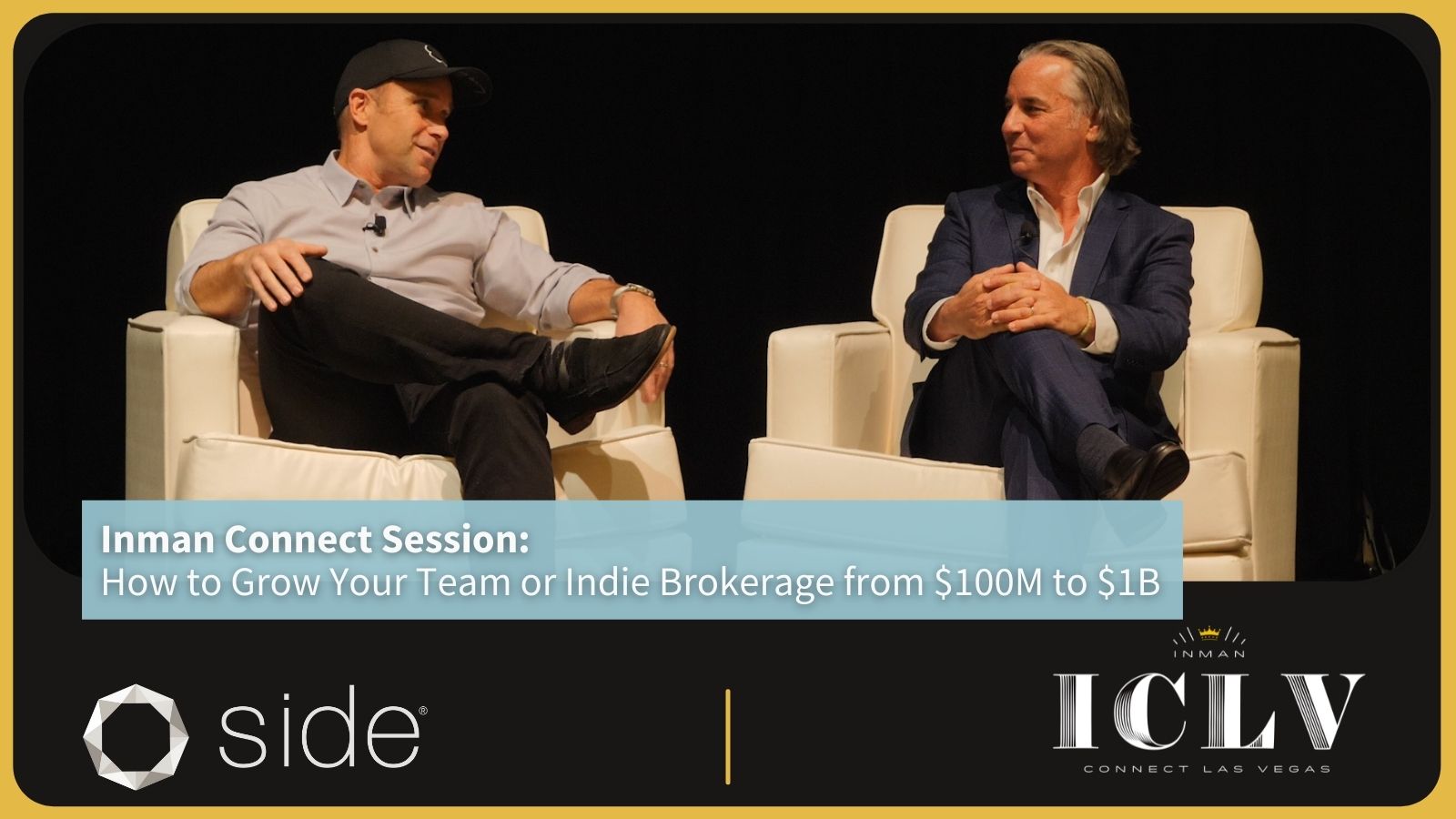
Brett Jennings knows a thing or two about growth — he grew his firm Real Estate Experts from $130M in annual sales to over $1B in annual sales in under three years. And he traces that success back to one key business planning exercise that started with this prompt: Write your own eulogy.
“Imagine it’s the end of your life,” Brett explained. “It’s your funeral, and you’re floating in the background. Who’s there, and what do you want them to be saying about you?”
Brett knew his future funeral attendees weren’t going to be saying: “Oh, Brett was a great guy, he sold so many houses.” He wanted to be remembered for and dedicate his life to something far more significant than that.
“I realized what I really love is growing, learning, and coaching,” Brett said. “I always thought that I would make some money in real estate, then eventually retire and maybe do business in life coaching. And a friend of mine said: ‘Well, why aren’t you coaching the people working for you right now?’”
“I always thought that I would make some money in real estate, then eventually retire and maybe do business in life coaching. And a friend of mine said: ‘Well, why aren’t you coaching the people working for you right now?’”
– Brett Jennings, founder of Real Estate Experts
Once Brett set about blending his work in real estate with his love of coaching, everything changed. “I started attracting people who really wanted to be coached and grow,” he said. “And that really put us on a hockey stick trajectory of growth.”
Now, Brett structures his business goals around his love of mentorship and coaching. In 2021, Brett set a goal to help five of his team members achieve $1 million in GCI … and he has already had 15 agents reach that goal.
In 2021, Brett set a goal to help five of his team members achieve $1 million in GCI … and he has already had 15 agents reach that goal.
2. Now is the time to embrace being in-person
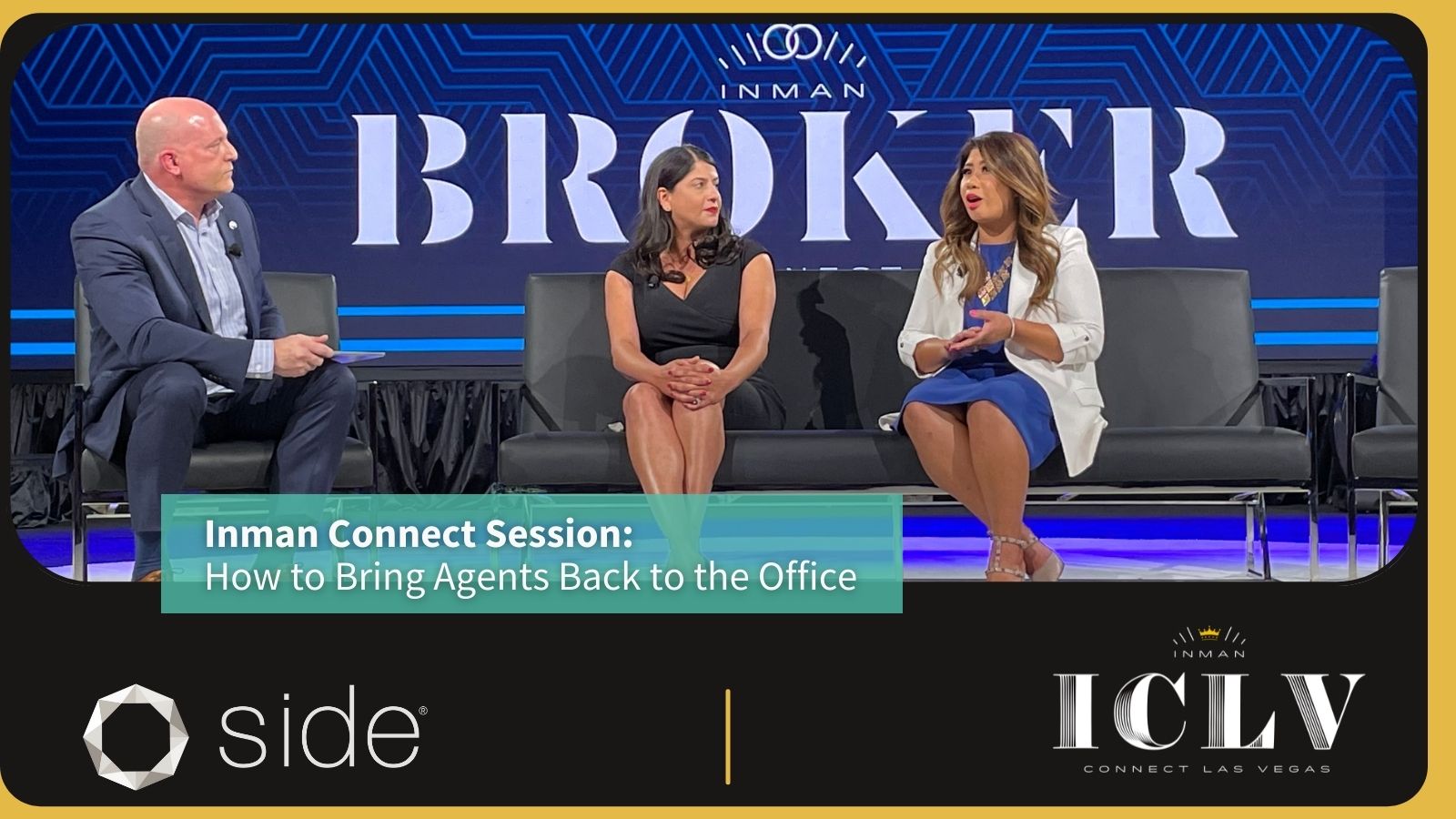
COVID forced countless real estate teams and companies to adapt to the new normal of working from home. Many embraced the virtual office environment, even terminating leases on office space in favor of a more virtual-forward workplace.
Melissa Sofia, founder of The Avenue Home Collective, made a strikingly different choice. As she put it: “When the entire nation locked down, we decided to do something insane: bring everyone back to the office.”
Since Melissa’s team already worked virtually, the transition brought on by COVID should have been smooth. But Melissa quickly realized that virtual work in normal times was vastly different from virtual work in a crisis — and to give her team the support they needed, she had to see them face-to-face.
“People needed to feel that togetherness,” she explained. “So I created a space where we could invite people back, if they felt comfortable, and we could share and grow and process together. And it worked: Watching how their colleagues were doing things sparked creativity and prompted them to take action they wouldn’t have been motivated to take otherwise.”
Melissa was quick to point out this strategy wouldn’t have worked with any old team. To create a company culture that thrived off collaboration, that was able to lean into in-person when everyone else was leaning away, Melissa first had to ensure she was hiring the right people.
“We don’t choose every agent who wants to come work with us,” she said. “We start with good humans, people who are incredibly client-centric and care about the community. By fostering a culture where people genuinely want to share with each other, and by coming together to learn from each other, our production levels grew from $85 million to almost a quarter-billion dollars in 2021.”
“By fostering a culture where people genuinely want to share with each other, and by coming together to learn from each other, our production levels grew from $85 million to almost a quarter-billion dollars in 2021.”
– Melissa Sofia, founder of The Avenue Home Collective
3. If you’re not investing in real estate, you’re not living up to your full potential as an agent

Anthony Navarro, founder of Harper Real Estate, did not mince words when he said: “Being a real estate investor is almost essential to being a real estate agent.”
His reasoning? If you haven’t done it yourself, you’re not going to truly understand how to support your clients through the process. And if you can’t support investors, you’re not able to serve a significant share of the market.
“When I talk with clients who are buying a home for themselves, I talk about my house,” Anthony explained. “I talk about my kids, how we use our house, and what’s important to us, and that elevates the trust between me and my client. So when I’m evaluating a property with an investor, I need to use the same lens — what would be important for me if I was thinking of investing in this property?”
4. Before you adopt new technology, think carefully about who created it and why

The real estate industry is overflowing with new technologies — some are truly revolutionary, but most are just noise.
“So many technology solutions are built for one reason only: to extract value from agents,” said Ed Wu, chief technology officer at Side. “They’re just another subscription or service that agents don’t actually need, something that only provides an incremental amount of value.”
Ed went on to explain that when it’s the brokerage, not a third-party company, creating the technology, that bodes better for the agent. A third-party vendor doesn’t have the same skin in the game; they just want you to keep paying for the service
“When the brokerage is the one creating the technology, our incentives are aligned,” said Ed. “When our partners succeed, we succeed, because we have the same goals. At Side, every single thing we’ve created has been the direct result of feedback we’ve gotten from our partner agents, which is how we know we’re creating something of value.”
This isn’t to say all brokerage-designed tech creates value — there are huge discrepancies between the quality of different brokerages’ tech offerings. You also need to evaluate whether and how well your brokerage’s tech is actually solving the most pressing problems you’re facing.
“At Side, our north star metric will always be features that save agents time,” Ed said. “Because there’s nothing more important for a top-producing agent than getting back as much time as they possibly can.”
5. Your main responsibility is not to sell — it’s to educate
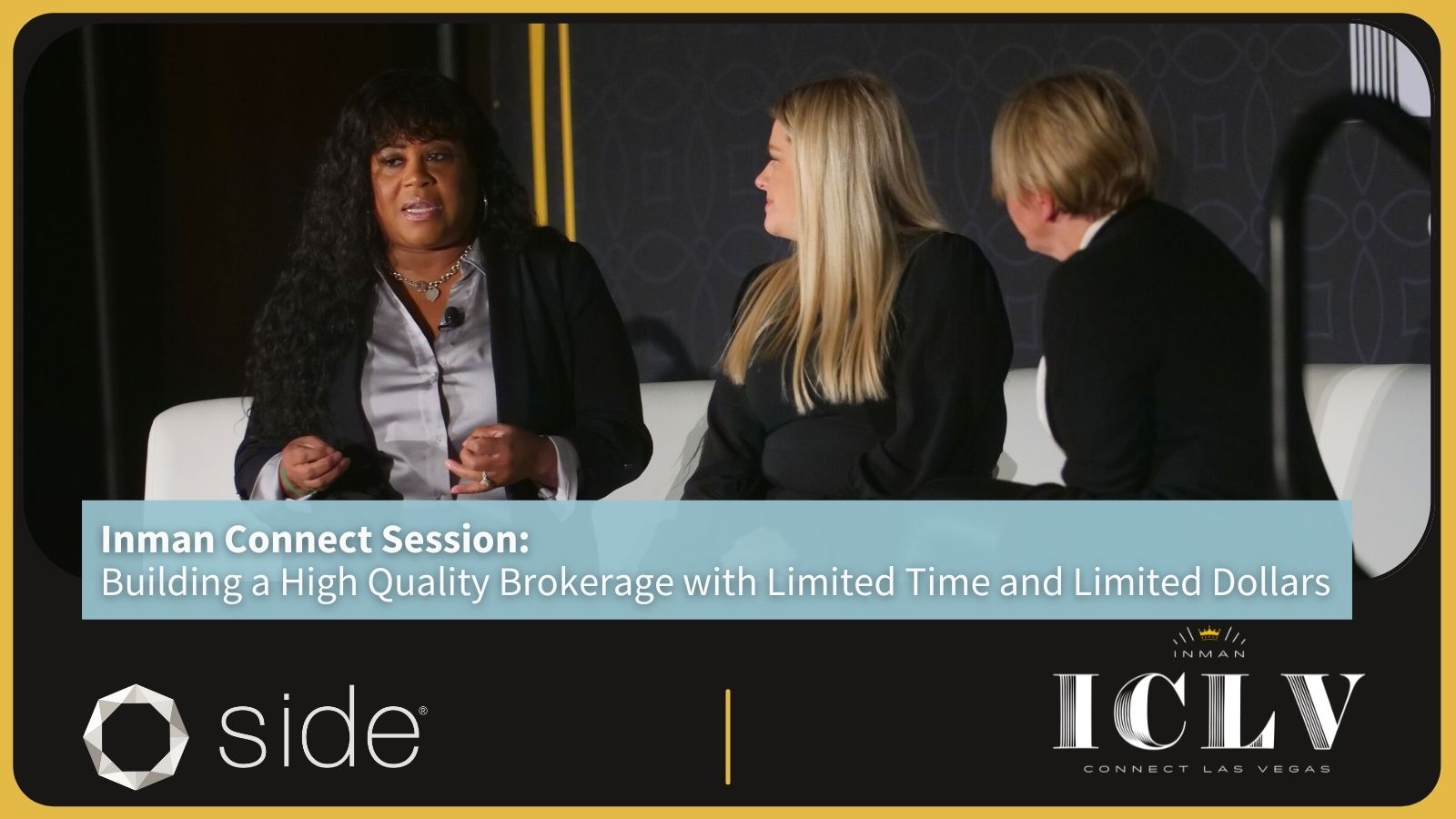
As an agent, you are responsible for guiding people through the financial transaction most closely associated with building generational wealth and legacy. That’s a tremendous responsibility you should never ignore.
“You have to understand that it’s our social responsibility to educate the community,” said Serina Lowden, co-founder of All City Homes. “You have to understand that generational wealth, legacy, and diversity are important. If those things are not components of your business, your main takeaway from this event should be to incorporate them.”
“It’s our social responsibility to educate the community.”
– Serina Lowden, co-founder of All City Homes
Serina and her co-founder, Roy Machado, decided to partner with Side in part so they could give their agents more time to focus on community education. With Side handling back-end brokerage operations, Serina, Roy, and their team have more time to hold monthly homeownership classes and engage in other community outreach.
“It actually sets us apart as a large brokerage,” Serina explained. “Do we get clients from it? Yes, a few. But that’s not the goal. The mindset is truly to educate and empower the community through homeownership.”
6. Don’t celebrate short-term wins if they don’t support your long-term strategy
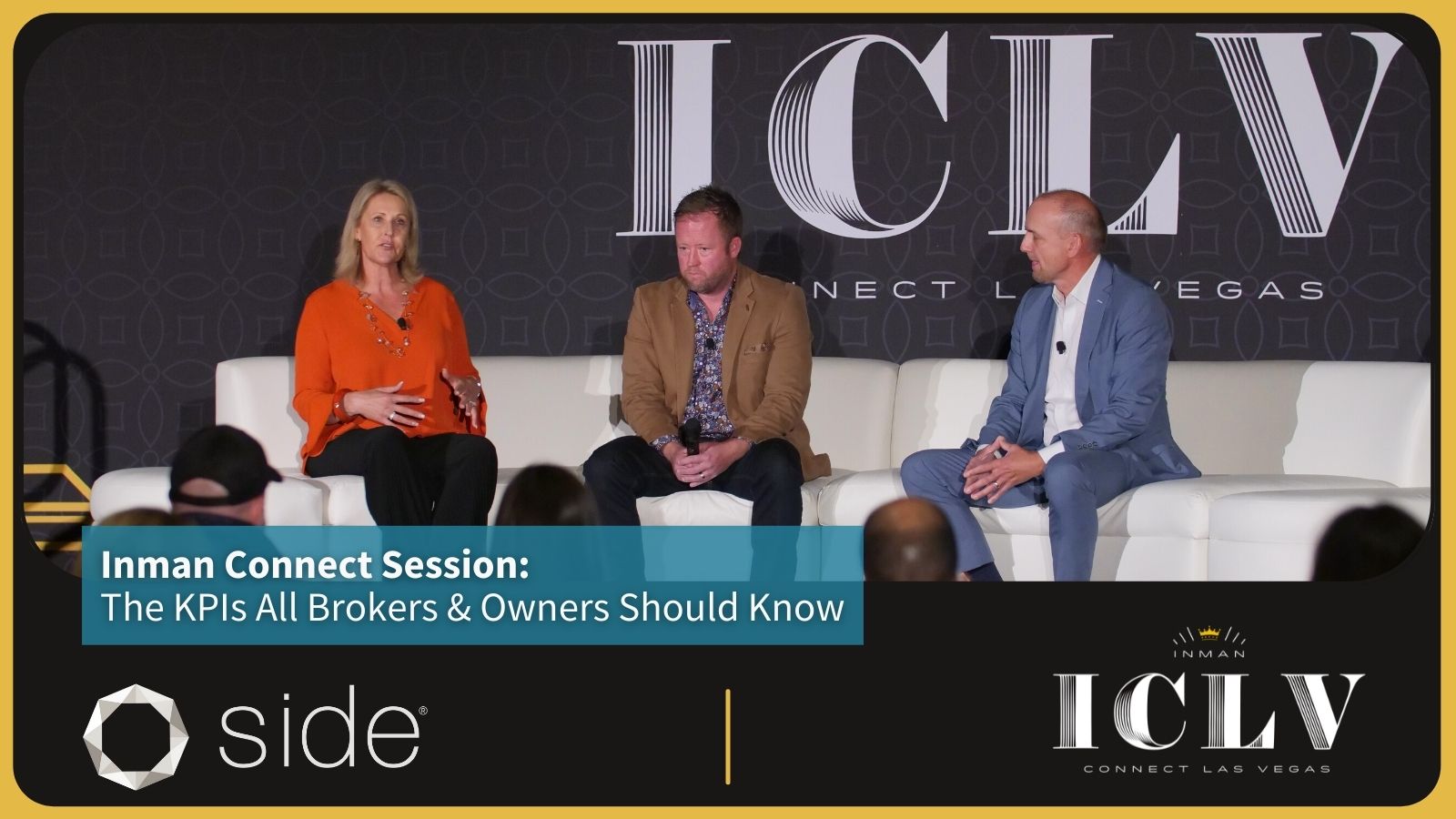
Susan Fixsen, founder of Pacific Oak Real Estate Services, doubled her personal production in 2021 — which was, in her words: “A big fail.”
That’s because her goal was to scale back on time with clients so she could focus on building up her agents. “It flip-flopped on me,” she explained. “The point was to gradually decrease my own production so I can go into a recruiting model, which is the best thing for my business and for me as a leader.”
Susan prioritizes the long-term health of her business over short-term achievements. So what to many would have been a huge win was, to Susan, a setback.
To grow your business, you have to set a goal, create a plan, and stick to it — if you get distracted by short-term successes, you won’t reach that long-term goal.
7. You don’t sell houses, you sell time
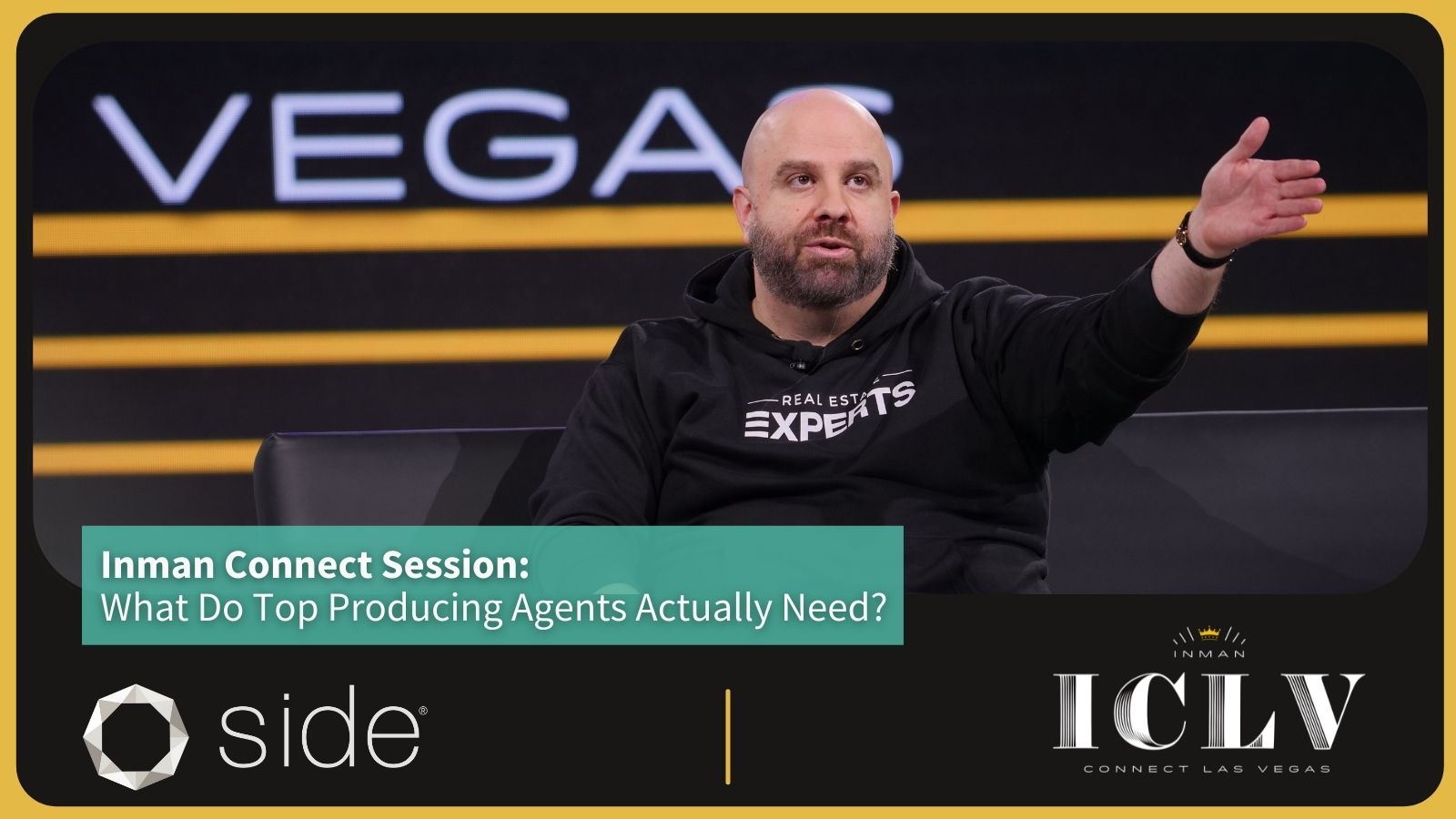
“The biggest constraint to an agent doing more business is not a lack of opportunity, it’s a lack of time,” said Guy Gal, co-founder and chief executive officer of Side. “Agents don’t sell houses, they sell time, and they only have so many units of time to provide to others.”
“The biggest constraint to an agent doing more business is not a lack of opportunity, it’s a lack of time. Agents don’t sell houses, they sell time, and they only have so many units of time to provide to others.”
– Guy Gal, co-founder and chief executive officer of Side
Once an agent taps out on time, they have to find other solutions in order to grow. At Side, those solutions include technology and services to streamline and offload repeatable tasks, along with building out a team.
“If we’re partnering with an individual top-producing agent, our first order of business is to transform that individual into a team,” Guy explained. “If you’re already a team, we help you become a company. And once you’re a company, we make sure it’s one that has real asset value, that performs predictably so you’re not waking up on January 1 every year wondering how you’re going to repeat what you did last year.”
Once you embrace that time is your most precious resource, you can position yourself for growth by pursuing solutions that conserve it.
8. You should be fighting for your agents’ loyalty every day

“It’s a different world than it was even just three years ago,” said Donnie Pingaro, founder of Ocean Insiders and managing broker at Side. “If you’re a team leader or brokerage owner, you have to give value back to your agents every single day, because those agents have a multitude of other options.”
“If you’re a team leader or brokerage owner, you have to give value back to your agents every single day, because those agents have a multitude of other options.”
– Donnie Pingaro, founder of Ocean Insiders and managing broker at Side
So how do you provide that value? You need to give our agents the space to focus on what they do best: provide excellent customer service to clients.
“Clear out the noise,” Donnie explained. “Put together services and systems that truly provide value and allow your agents to focus on clients, not on all these other things they really shouldn’t be doing.”
As an example, Donnie cited marketing metrics. “We’re on the Side platform, so we have the luxury of having a business manager who works with each agent to strategize and keep everything on the rails,” he said. “We’ve all been in a hot market where you may be doing well, but you don’t know if your marketing is actually working for you. The business manager lets us know what’s working and what needs to be tweaked.”
9. Boutique is the future of real estate

We’ve said it before, and we’ll say it again: At Side, our vision for the future of real estate is local, boutique, and agent-owned.
“We see a future in which many fewer agents are doing a lot more business as part of thousands of local boutiques,” said Guy. “And those agents can spend more time on things that move the needle because they don’t have to spend time operating the back office or in the weeds of the transaction.”
“We see a future in which many fewer agents are doing a lot more business as part of thousands of local boutiques. And those agents can spend more time on things that move the needle because they don’t have to spend time operating the back office or in the weeds of the transaction.”
– Guy Gal, co-founder and chief executive officer of Side
Side won “Company of the Year” at the 2021 Inman Innovators Awards, which speaks to the strength of this vision. But really it’s not Side the company but Side partner companies who deserve all the credit for their phenomenal growth and market domination. Boutique is the future, and these agent-owned boutiques are leading the charge.
